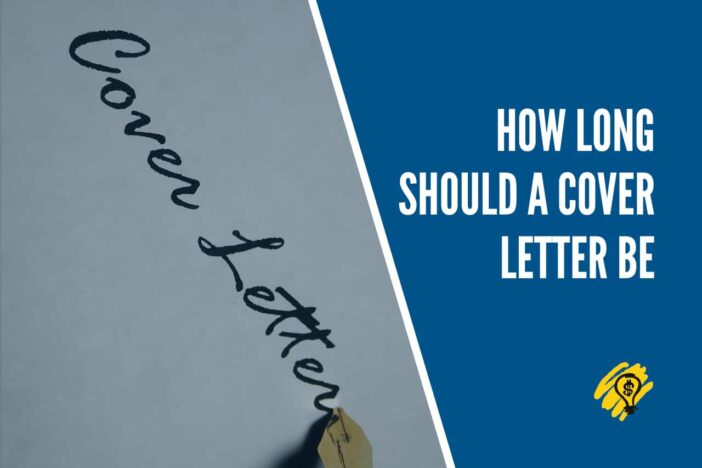When you finally put all your strength together to craft a perfect cover letter, you may face the trouble of not knowing what length you should go for. Do you have to make it short or long? 1 page or 2 pages? But do not worry, we got you covered and discovered the perfect formula for cover letter length.
Remember that the hiring manager proceeds hundreds of letter per day and do not have the time to read the novel. If you cannot tell about your strength in 3 sentences, you probably do not have it. Therefore the rule of less is more is perfect for cover letter writing. At the same time, saying too little might mean that you do not have much to tell about yourself. It is also a bad sign for a herring manager; therefore, stick to the show, not tell rule.
The cover letter should not be longer than 1 page. The perfect length is just about half a page – page.
Speaking in numbers:
- Pages: up to 1
- Word count: 300-500
- Paragraphs: 3-4
Here is the practical advice on how to make your one-page cover letter effective:
Keep it brief but comprehensive
While the cover letter is an excellent opportunity to express your individuality, it is equally critical to be concise. Hiring managers usually go through hundreds of applications per day. They simply do not have enough time to read a two-page piece about your daily activities, family background, and hobbies. You’d better leave it for the biography. Instead, emphasize any relevant experiences that demonstrate your capabilities for the job. Showcase your strengths, focus on your work achievements and express your excitement about the job. The hiring manager will appreciate your conciseness.
Write only what is relevant to the job
You do not have much space to go into every single detail in your work history. Think of only the most necessary professional examples that demonstrate that you are the best candidate for the position. Emphasize your qualifications as well as any important stories of success.
It is critical to be descriptive and not simply repeat your resume’s information. Moreover, focus all the hiring manager’s attention on your previous accomplishments, how you helped the organization address its present difficulties and how you will use your expertise if chosen for the position. The hiring manager should see the value you can bring to their company.
Clearly follow your professional level
Cover letters differ depending on your level of experience. If you’re applying for jobs fresh out of college, don’t disclose metrics like GPA unless specifically requested. Instead, concentrate on your experiences, projects, and accomplishments that distinguish you as a strong candidate.
If you are in the middle of your career, highlight important achievements and explain your degree of experience. You are more likely to have relevant qualifications and stories if you have more experience but it does not mean writing more. Choose a few noteworthy accomplishments and leave the rest for the interview process.
Formatting
Your cover letter’s format is just as crucial as its length. Take note of the quantity of white space on the page. More white space makes it easier for the hiring manager to read the information. Make certain that you use a legible font. Maintain regular margins and center the content.
Even though it might look like an impossible thing to do cover letter writing should not scare you. Follow basic steps, keep it short, and be yourself. If you are a true professional and job enthusiast making a one-page letter about your work history should be exciting, not devastating.



